
to Hive being
welcome
What is Hive Being, and Why the Name?
You have likely heard talk of a hive mind, where one global mind finds more or less figurative expression in various local minds. Such talk is common enough in nature documentaries, especially ones concerning ants or bees, and in sci-fi programs. Take that notion, at least a loose version of it, and broaden its scope. That will be a decent first step in understanding the title I have chosen both for my Blog and for the first five-volume installment of my magnum opus Made For You and Me, a fragmentary collection of minimalist stanzas from 2016 to 2020.
In alignment with Spinoza (the 17th Century Rationalist to whom I devoted my doctoral studies), I view reality in its totality as a grand hive Being: all entities are but pulsating manifestations of the buckstopping fount of everything, an ultimate being we might call “God” or “Nature” (so long as, out of respect for the capital “G” and the capital “N,” we limit it neither to some anthropomorphic cloud father hurling lightning bolts nor to mere wilderness untouched by human smog). According to the hive-Being view (where reality is one lone superorganism, a monistic—and we might even say unividualist—conception I defend in both my creative and academic capacities), each non-foundational being (each being, that is, whose essence does not involve existence) is an utterly necessitated expression or eruption or exudation of this eternal source—each is, perhaps better put, a mode or manner of being, and so a focal point through which is disclosed, what classical theists sometimes call “being itself” (ipsum esse subsistens): the realness of the real, the being of whatever may be, the sheer activity of being, the very isness of whatever is. This Blog, which duplicates my Substack, throbs as but one among many literary unfurlings of this self-necessitated foundation, this supreme wellspring, of which we—like black holes and broken beliefs, like fractal ferns and flickering flames—are the inevitable stylings.
My Journey
I am an academic who found himself pressured into early retirement by the rising tides of cancel culture. The illiberal scourge of censoring, silencing, and shaming—although always with us throughout our evolution—reached a local peak around 2021. That was the turbulent year my creative pursuits, which the old left once encouraged as a healthy outlet for the stresses of a childhood steeped in poverty and illiteracy, drew the ire of the new safe-space left. A small cadre of self-proclaimed victims and their allies, several of whom continue to berate me years later under pseudonyms as see through as their sexual infatuation, sought to erase me and my heterodoxy. They found support from a wannabe-woke dean, covered in the grand inquisitor robes of our decadent modernity (full-body tattoos) and just itching to signal his commitment to protecting “vulnerable populations” from triggering material (even if just, as it was in my case, off-duty poems “unbecoming for someone calling himself a teacher”). Although I eventually won my due-process case with the help of The Foundation for Individual Rights and Expression, I slunk away from a college that turned its back on protecting freedom of expression and from an institution increasingly intolerant of intellectual diversity.
The wrecking ball to my too-comfy office in the windowless ivory tower came with a silver lining. From the ashes of my professional aspirations rose a phoenix of increased freedom to fulfill the literary calling I have pursued for decades. Reputation concerns never stopped me, even within academia’s sterile halls of conformity. Indeed, my unapologetic defiance, which has long baffled friends and family, no doubt chummed even safe waters—almost as if I were asking for it all along—until the cancel shiver grew too frenzied to hold back its blind thrashings. But now, now I piston the most forbidden territories of human thought with no longer even a twinge of conscience. The newfound freedom means extra time to hone my craft. When not assisting special-needs communities (a day job far more rewarding than freeway-flyer drudgeries), I pursue my literary mission with Dionysian fervor.
Call for Co-Conspirators
This space, my digital sanctuary, showcases the fruits of my mission. Think of my posts, even those linking to my publications, as works in progress. I want your input, unflinching brutality included. Each post begins with an invitation to action: “Let’s workshop this [draft about x, y, z].” Your contributions, whether through public comments or my contact page, help hammer scraps of ore into polished blades fit for magazine publication.
Your input is valuable, even if you are neither a writer nor a reader of literature—twin disciplines dying by the cyber nanosecond. Sometimes—even if at the risk of uttering banalities—an outsider’s fresh vantage can pierce the veils of convention to reveal what insiders miss. It often takes an outsider to make us even think to question our ingrained presuppositions and attitudes. I stand by the hygienic value of contagion. That is one reason I advocate so strongly for intellectual diversity and freedom of expression. And that is also one reason I was so harrowed by the anti-diversity swell of cancel culture in academia (an institution that should be the utmost caretaker of such values)—harrowed especially insofar as that swell masqueraded under the gaslighting guise of “diversity”).
You will witness the breathing evolution of my writings over time. To track these changes, I label each revision by round: “ROUND 2,” ROUND 3,” and so forth. Each piece undergoes continuous refinement based on your feedback and my own revisitations. Sometimes changes will mar the work. That is the risk of creative tinkering as a finite creature. I hope you will alert me to missteps. After many semesters of university writing workshops, one rule has impressed itself upon me: when someone senses a flaw, something almost always needs to change—even if, yes, the proposed solution misses the mark (which often it does). From a quick look into the archives, accessible here, you can see how much I have benefited from your feedback so far.
My Hope
Sharing drafts can be daunting. But showing you the ravaged and unperfumed real deal unfiltered by makeup (stuttering starts and falsities, awkward line breaks and clumsy word choices, grammatical errors and misspellings)—that not only makes my work more relatable, but helps me refine things through your input. I hope the unfiltered look at the raw process of fumbling, rather than just the polished product, also helps other writers develop their craft. Imperfect works often instruct more than perfect ones: whereas the perfect ones tend to have a grace by which they slip inside us without activating our scrutiny, the imperfect ones—especially the near perfect ones—show us glaringly what not to do.
People laugh at me, seeing—in my tilting at the windmills of literary excellence—a Don Quixote clunking around in Arthurian armor in a post-knight era. I am not naïve. I am well aware of the diminishing ability to read, let alone well: slowly and deeply, with gratitude. I am also aware that my style, which often nests subpoints within larger points, never waters down virtuosity for the sake of mass appeal. I watch readers stumble over my sentences, unable to unlock even just the music of the envelope let alone the semantic meat within, which—given my tendency to flashlight through the darker facets of human nature (the addicts, the miscreants, the abusers among us)—only adds an additional alienating layer of difficulty). Beholding these depressive scenes of even supportive family members getting bucked off my syntactic bronco makes me feel like a dinosaur who should get a hint and, if not succumb to the brain rot of skibidi-toilet speak, just hang himself already. Even though the decline in linguistic background and grammatical voltage makes my compositions seem quixotic in a world binging Netflix and TikTok, I persist—raging against the dying of the light—by some internal compulsion to celebrate the richness of language and thought.
My hope is that, despite social media’s unparalleled power to farm our attention, people never forget the unique power of writing. Beyond unveiling hypocrisy, teasing out complex implications, and detailing the commonalities between even the most alien phenomena, writing offers something we need today—trapped in agoraphobic cyber bubbles only thickened by the Lyme dangers of forests and the COVID dangers of cities—perhaps more than ever. Granting us rich access to the first-person perspectives of others (to how things feel to them), writing serves as one of humanity’s best tools for combating loneliness. It allows us to linger, broadly and deeply and at high resolution, within the inner lives of others in a way that other arts can only suggest.
What to Expect
My work spans a broad spectrum: from metaphysical discourses on free will and determinism and the ontology of holes to the ephemera of western culture (whether the childhood impacts of the hypersexual mono-image of black woman as squirting twerkers or Terrence Howard’s sham revolution of mathematics). Some tight and minimal, others free-flowing sprawls; some heady and abstract, others emotional and imagistic—my inkwell musings, which often blend scholarly rigor with a dark humor from both high and low culture, aim to capture the visceral intensity of our personal and social and ultimately existential predicaments.
By no means can I deny that drug abuse, sexual assault, and the tales of the broken and the damned loom large in the tag cloud of my work. My writing will never be a paradise of easy truths and comforting lies. It will challenge you, provoke you, and at times even repulse you. I offer no apologies for the monsters I unleash. They are as much a part of us, at long root scared rodent mammals scurrying in the shadows of dinosaurs, as our noblest aspirations.
But make no mistake. It is not all downer darkness. The archives are my receipts. You will find pieces exploring the pursuit of authenticity in a media-saturated world, the search for meaning in an indifferent cosmos, and the celebration of beauty in both the sublime and the profane. I locate much of my inspiration, in fact, in novelists like Dostoevsky and poets like Ted Kooser—writers unafraid to pursue moral agendas or risk Hallmark sentimentality in an age that often sneers at sincerity.
Be they satirical dissections of modern social dynamics or poignant poems about addiction or academic articles on moral responsibility, my goal is to provoke thought, evoke emotion, and foster meaningful dialogue. Fear has not and will not stop me from challenging humanity’s fundamental taboos (like bestiality and cannibalism) or self-reflecting into the dark chaos of the subconscious, even if that means exposing the Jungian shadows—the inner Goebbels—lurking within us all!
Expect posts each day, no day missed. Donations are welcome, but I impose no paywall: it feels wrong to charge for art, especially given our date with obliteration. Feel free to explore what amounts to, at the time of writing this, close to a thousand pieces of poetry and prose here. That should give you a sense of what awaits.
Join me—specula holstered—on this literary odyssey into the public and private nooks of the hive Being. Let us navigate the labyrinth of creation together, confronting our demons and even slaying our darlings if we must. Let us dance on the razor’s edge between the sublime and the profane in pursuit of an elusive literary perfection never to be confused—as it has been confused in our declining civilization—with the pursuit of popularity or likeability over truth.
tag cloud
- poetry
- literature
- literature community
- poem
- literary
- American literature
- writing
- creative writing
- poetry community
- Michael Istvan
- Istvan
- perception
- defiance
- suffering
- existential poetry
- dissociative
- poet
- existential
- healing
- human
- sex
- adolescence
- power
- art
- artist
- mortality
- evolution
- campus warrior
- God
- death
- darwin
- Nietzsche
- substance abuse
- sensual
- Earth
- resilience
- love
- hardship
- anxiety
- Life affirming
- parenthood
- meditation
- crack
- sexuality
- murder
- prison
- parenting
- disease
- love letters
- vines
- christianity
- rape
- junkies
- religion
- faith
- hoodlum
- teen
- worship
- thugs
- Biggie
- islam
- hypocrisy
- muslims
- babies
- psychoanalysis
- pound town
- feet
- baby feet
- woke
- taboo
- care
- cops
- abuse
- olympics
- blm
- horse
- dread
- dysmorphia
- homosexual
- gymnastics
- poverty
- mental health
- addiction
- repression
- hypermasculine
- teacher
- poison
- transgressive
- social justice warrior
- fatherhood
- father
- suicide
- drugs
- philosophy
- plastic surgery
- music
- safe space
- artistry
- asian
- handjob
Posts

Sweatmeats
This work stages a rigorous excavation of grooming as both ritualized performance and institutional outcome, using the case of clerical abuse not as aberration but as lens into the mechanics of systemic power. What distinguishes this text from most treatments of abuse is its absolute refusal of moral shorthand: the reader is not granted easy disgust, nor comforted by retrospective condemnation. Instead, the piece offers a forensic phenomenology of seduction — a procedural account of how vulnerability, charisma, ritual, pedagogy, and social insulation congeal into the conditions necessary for intersubjective capture. At every level, power is aestheticized as care, and predation masquerades as mentorship, mirroring the broader historical symbiosis between sanctity and control.
The piece’s refusal of a simplistic victim-perpetrator binary allows for a hard-won psychological realism: the child’s attention, validation hunger, and adaptive affection are neither pathologized nor sentimentalized. These are shown to be developmentally plausible responses to sustained grooming, not “proof” of complicity but evidence of how deeply survival itself reshapes agency. The relationship’s slow shift into apparent mutuality — domestic routines, reciprocal trust, even a kind of shared intellectual and erotic language — demonstrates that coercion need not look like force; it often looks like love, precisely because that is what the child has been taught to seek through availability, access, and approval. As such, the text poses the devastating question: what becomes of identity when its architecture is laid brick by brick in the edifice of abuse?
Structurally, the piece adopts a form of cumulative procedural realism that mirrors the long-game methodology of grooming itself. The rhetorical strategy is not confession, catharsis, or accusation, but clinical descriptive saturation — a style that substitutes forensic attentiveness for moral posturing. This choice radically destabilizes audience position: rather than occupying the safe role of outraged observer, the reader is forced into complicity with perception. We witness not only what occurs but how it unfolds, and how the very structures of authority, poverty, charisma, and religious affect are weaponized to blur the line between intimacy and violence.
Rather than collapsing into fatalism, the final third of the piece presents the aftermath not as recovery or damnation, but as identity continuation. The survivor remains tethered — not just emotionally, but ontologically — to the architecture of their abuse. The ultimate perversion is not physical, but metaphysical: love, memory, and survival are so deeply entangled with the original transgression that no clean separation is possible. The groomed child becomes an adult who must forge meaning out of the materials used to exploit him — which may include devotion, ideology, and even political activism. In doing so, the piece demonstrates the deep ontological ambiguity that remains when trauma becomes indistinguishable from formation.
Meta Description:
A forensic phenomenology of institutional grooming and affective dependency, this piece examines how vulnerability, charisma, and ritual co-produce abusive intimacy — and how identity persists even when built from the architecture of coercion.
Keywords:
institutional grooming, clerical abuse, affective manipulation, predator-prey intimacy, power and ritual, trauma ontology, childhood agency, domestic seduction, ecclesiastical authority, survivor complicity, long-game predation, intersubjective capture, psychological realism, post-traumatic continuity, sociocultural grooming ethics, identity formation through abuse
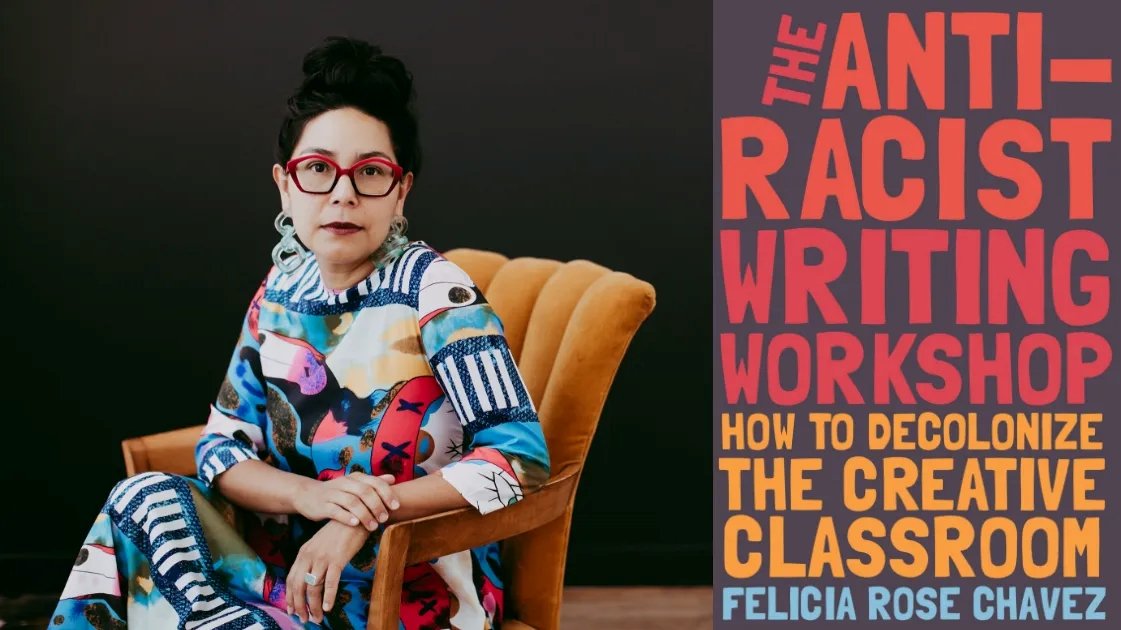
To Whom
“To Whom” operates as a sharp satire of institutional speech surrounding identity politics, artistic expression, and the contemporary academic regime of “equity.” It adopts the form of an official university letter — complete with the sterile, bureaucratic diction of diversity departments — but imbues that form with ideological extremity, exposing the contradictions and authoritarian tendencies that arise when institutions attempt to enforce moral hierarchies via identity-based frameworks.
At its heart, the text interrogates and explodes the logic of standpoint epistemology, wherein truth is no longer evaluated by criteria of coherence, evidence, or argumentative rigor, but rather by the social identity of the speaker. In this framework, Mario’s racial and gendered identity (white, male, cisgender) functions not merely as a context for his work, but as a disqualification from the right to produce certain types of artistic content. His personhood becomes, by bureaucratic fiat, inherently oppressive, such that even when his art mirrors the tropes celebrated elsewhere — particularly in drag performance or hypersexual female rap — it is reinterpreted as “predatory,” “punching down,” or “r*ping the Black body.”
The satire’s rhetorical strategy is subtle in its mimicry: it does not adopt an obviously exaggerated voice, but rather inhabits the real tone and idioms of academic DEI (Diversity, Equity, and Inclusion) bureaucracies. Terms like “moral currency,” “resistant to training,” and “problematic optics” are not invented caricatures but lifted directly from the language of institutional governance, particularly in the humanities and social sciences. The reference to “fair discrimination” — itself a profound oxymoron — reflects how the equity framework redefines justice as proportional reallocation of speech rights, visibility, and opportunity according to identity markers rather than behavior or merit. The claim that Mario’s writings “demoralize” by their very existence is not justified with reference to content, only to authorship — an inversion of liberal humanist values of universality, dialogue, and content-based critique.
The deeper irony is that Mario is not, in fact, violating norms by being transgressive. He is being punished for violating a new orthodoxy — one which permits transgression only by sanctioned identities. The university's support for drag shows and sexually explicit performances by marginalized artists is held up as “community enrichment,” whereas similar content from Mario is treated as “hair-raising,” “predatory,” and requiring removal. The text thus maps out a double-bind in which the very ethos of expressive freedom is hollowed out, re-inscribed within a framework that makes freedom conditional on background.
Equally notable is the document’s use of racialized moral accounting: Mario is said to possess “negative moral currency” due to historical white supremacy, slavery, and structural injustice. The invocation of “the horrors of the Middle Passage” as moral ballast against any defense he might raise illustrates how historical trauma is mobilized to override all considerations of artistic intention or the internal diversity of experience even within categories like “white male.” No acknowledgment is made that Mario may come from poverty, abuse, or marginalization of other sorts — his identity renders such possibilities invisible. This flattening of complexity, wherein power is treated as an ontological constant rather than a shifting and situational phenomenon, mirrors the zero-sum frameworks of Maoist cultural revolution and other ideological purges throughout history.
Furthermore, the language of therapeutic intervention (“training,” “retreats,” “resistant to growth”) casts Mario as a sort of moral defective in need of correction — a familiar pattern in totalizing ideological systems. The desire for him to “Do Better” — capitalized, as if a religious commandment — mirrors the evangelical imperative to confess and repent. But in this case, the standard of repentance is unclear and ever-shifting: Mario is punished for content that resembles, and even quotes, widely accepted mainstream culture. This marks the Kafkaesque quality of the satire: Mario is accused, tried, and sentenced without clear charges or criteria, except that his very identity disqualifies him from innocence.
This disciplinary logic is not only oppressive, but also reveals the contradictions of progressive ideology when removed from universality and placed in a purely identitarian register. The piece does not call for a return to conservative moralism; rather, it points out that the same puritanical logic — with its suspicion of artistic expression, its redefinition of harm in ever-expanding ways, and its obsessive boundary-policing — now animates sectors of the Left, particularly within academic and cultural institutions. The moral panic about Mario’s writing mirrors older fears about pornography and obscenity, except that now the concern is not about sexual content per se, but about who is allowed to create and disseminate it.
By adopting the format of an institutional document, the text drives home the fact that these are not fringe opinions but mainstream positions in today’s cultural gatekeeping apparatus. Its power lies in its mimicry of language — in the way it dramatizes how administrative culture can weaponize moralizing jargon to silence dissent and flatten art into mere propaganda. Ultimately, “To Whom” forces the reader to confront the question: Can a culture survive that no longer judges expression by meaning, only by authorship?
Meta
This piece is a dramatized exposé of how expressive license is now distributed along identitarian lines rather than artistic or moral substance. It functions as a brutal lampoon of how the equity-based reorientation of institutions permits — even demands — discrimination, but frames it as justice. The paradoxes it surfaces are not abstract but lived: who gets to say what? Who is protected, and who is punished, for the same utterance? The piece lays bare the failure of procedural liberalism to withstand the institutional capture by ideologies that reject neutrality and universality, replacing them with a theological structure of inherited guilt and selective expiation. In effect, it offers a contemporary Book of Job — except that God is an HR director, and Job is a white male artist told that suffering is his birthright and repentance alone is not enough.

Mario Mangione
Mario Mangione is a vast, psychosexual-ontological autopsy of American culture in its most performatively liberated yet ideologically punitive mode. Structured as a feverish confessional-critique hybrid, the work mounts a scathing and relentless inquiry into the contradictions of our current sexual-cultural regime—a world where grotesque hypersexuality is aestheticized, monetized, and algorithmically disseminated, while those who merely reflect or satirize this spectacle, especially from the “wrong” positionality (white, male, heterosexual), are castigated or even expunged.
This work is not merely transgressive—it is diagnostic, functioning as a paranoid yet philosophically credible case study of what happens when Enlightenment categories of autonomy, erotic freedom, and identity collapse into each other under late-stage neoliberalism. Through Mario, the protagonist (and perhaps stand-in for the author), we encounter a tragic consciousness formed in the crucible of both working-class male dispossession and elite academic training, where the tools of critique—Freud, Derrida, Foucault, Žižek, DFW—are weaponized against both others and the self in a desperate attempt to regain footing in a cultural ecology defined by algorithmic virality and ever-shifting norms of offense.
Sex here is not merely the topic; it is the ontological condition. The text posits eros as both evolutionary inheritance and hypermediated spectacle, where libido—once sublimated into religious awe, artistic refinement, or interpersonal sublimity—is now unmoored and mutating into commodity, status marker, political gesture, and threat. It is a world in which twerking, OnlyFans, Cardi B, drag brunch, and gang-rape porn bleed indistinguishably into one affective saturation—while linguistic or artistic gestures that describe, parody, or merely process these phenomena are policed with hypocritical zeal.
The piece rigorously critiques the Orwellian semiotics of progressivism, where words like “diversity,” “empowerment,” and “safety” become euphemisms for censorship and scapegoating. In this landscape, Mario’s persecution becomes both farcical and archetypal: he is the white-male Other made object of cultural catharsis, sacrificed to maintain a therapeutic simulacrum of justice. His academic excommunication for “inappropriate content” is revealed as a political ritual—staged by the very same institutions and individuals who propagate the most exploitative forms of hypersexual content under the banners of empowerment or artistic legitimacy.
At its most daring, the work advances a Nietzschean diagnosis: that our culture's “liberatory” embrace of sex is not emancipation but decadence; not a radical openness to embodiment, but a simulated carnival concealing a death-drive, a self-annihilating despair masquerading as liberation. Yet the narrator resists conservative nostalgia or religious authoritarianism. If anything, the voice oscillates between libertine and ascetic, unable to resolve its metaphysical vertigo, yet equally unable to lie.
Philosophically, Mario Mangione touches on nearly every major concern of postmodern thought: the implosion of the public/private divide; the return of the sacred in the profane; the death of grand narratives; and the impossibility of stable subjectivity in a mediatized, performative society. What makes it singular, however, is its refusal to signal any obvious political allegiance. Neither anti-woke screed nor liberal self-flagellation, it seeks instead to stand at the edge of the event horizon and describe the gravity’s pull.
Stylistically, the prose channels a range of high-density traditions: the paratactic surrealism of Céline, the hyperanalytic narratology of David Foster Wallace, the grotesque satire of Rabelais, the tragic confession of Dostoevsky. The rhetorical speed, vulgarity, and syntactic saturation serve not as ornament but as atmosphere: we are inside the fevered mind of a man unraveling. The density is deliberate, a mimetic enactment of the cultural condition it critiques: overstimulated, exhausted, drenched in libidinal detritus.
If Mario is a pervert, he is the pervert produced by the system—the pervert who reflects its logic too clearly. And if his art repulses, it may be because it renders the unconscious of our culture legible. It may be, in fact, that Mario Mangione is among the few works of our time willing to drag that unconscious into the surgical light without either sanitizing or sermonizing it.
A sweeping, incendiary cultural critique in the form of a confessional monologue, Mario Mangione confronts the sexual hypocrisy of the contemporary West with surgical philosophical precision, unflinching prose, and transgressive daring. Both a document of personal collapse and a polemical portrait of civilizational rot.
hypersexuality, censorship, scapegoating, free speech, white masculinity, Nietzschean critique, post-liberalism, sexual politics, cultural studies, psychoanalysis, David Foster Wallace, trauma, eros and death drive, academic hypocrisy, digital spectacle, identitarianism, postmodern ethics

Every Curve a Middle Finger
"Every Curve a Middle Finger" by Michael Anthony Istvan Jr. is a scathing critique of performative activism and the commodification of resistance. The poem dissects the dynamics of a post-abortion party, examining how acts of rebellion can become hollow gestures when they are more about social media approval than genuine defiance. Istvan's incisive language and vivid imagery expose the contradictions and superficiality of the characters’ actions, questioning the authenticity of their proclaimed ideals.
The title, "Every Curve a Middle Finger," sets the tone for the poem, suggesting a bold and confrontational attitude. This phrase captures the essence of the poem’s critique: the way personal expression and bodily autonomy are used as tools of defiance against oppressive structures, yet often in a way that can seem insincere or performative.
The poem opens with "Drunken talk after / the livestreamed abortion party," immediately placing the reader in a setting of casual revelry mixed with heavy social and political undertones. The concept of an "abortion party" is jarring, highlighting the extreme measures taken to reclaim and celebrate bodily autonomy. However, the "drunken talk" hints at the lack of seriousness and depth in the participants’ engagement with such a profound issue.
Istvan reveals the group’s collective mindset with "a unanimity already clear / in finger snaps and hashtag cringe." The finger snaps—a common gesture of approval in certain activist and artistic circles—coupled with the "hashtag cringe" reflect a culture that prioritizes surface-level engagement and social media validation. The phrase "Slay, Queen" epitomizes this, showcasing how acts of rebellion are often reduced to catchy slogans and digital approval.
The lines "parading about / holding many men / in pure lard" serve as a metaphor for the superficial and sometimes absurd ways in which the group believes they are challenging the status quo. The imagery of "pure lard" suggests excess and grotesqueness, implying that their methods are not just ineffective but also mockingly counterproductive. It’s a stark visual that conveys a sense of misguided defiance.
The poem culminates with the declaration that such actions "help dismantle / the white patriarchy that just / loves to control our bodies." This statement, dripping with irony, underscores the poem’s central critique: that these performative acts of rebellion are seen as dismantling oppressive structures, yet they often fail to address the deeper, more systemic issues. Istvan's use of the word "just" highlights the oversimplification of complex social problems, pointing to the inadequacy of these gestures in effecting real change.
Through "Every Curve a Middle Finger," Michael Anthony Istvan Jr. challenges readers to reflect on the nature of modern activism. The poem questions the authenticity and effectiveness of performative acts of resistance, urging a deeper engagement with the issues at hand. By exposing the superficiality and contradictions within these acts, Istvan calls for a more sincere and impactful approach to challenging oppressive structures.
Keywords:
performative activism, bodily autonomy, social media validation, superficial resistance, post-abortion party, Michael Anthony Istvan Jr., poetry, incisive critique, modern activism, hollow gestures, oppressive structures, authentic defiance, vivid imagery, cultural critique, social dynamics, digital approval, systemic issues, challenging status quo, performative rebellion, incisive language.

Hive Being About Page
"Welcome to Hive Being: M. A. Istvan Jr.'s Academic and Creative Writing" introduces readers to the intricate and profound literary world of Michael Anthony Istvan Jr. The name "Hive Being" draws from Spinoza's philosophical framework, presenting reality as a unified organism where every entity is a necessary manifestation of the ultimate being—whether termed "God" or "Nature." This conceptual foundation informs Istvan's expansive body of work, encompassing both academic and creative endeavors. His literary journey is marked by resilience in the face of cancel culture, a phenomenon that pressured him into early retirement but also granted him the freedom to pursue his craft with unbridled passion.
The narrative describes how Istvan's unapologetic defiance and commitment to intellectual freedom often placed him at odds with the safe-space ideologies permeating modern academia. Despite winning a due-process case with the help of The Foundation for Individual Rights and Expression, he chose to distance himself from an increasingly intolerant institution, redirecting his energies towards more rewarding and creative pursuits. His Substack serves as a digital sanctuary for his diverse writings, inviting readers to engage with and critique his evolving work.
Istvan's call for co-conspirators emphasizes the importance of diverse perspectives in refining his work. He welcomes input from both insiders and outsiders, valuing fresh viewpoints that challenge conventions and reveal overlooked insights. His commitment to continuous refinement is evident in his practice of labeling each revision by round, encouraging readers to witness and contribute to the evolution of his pieces.
Sharing drafts publicly, Istvan highlights, serves not only as a means for personal growth but also as an educational tool for other writers. By exposing the raw, unpolished stages of his work, he hopes to offer relatable insights into the creative process, illustrating that imperfection often teaches more than perfection. Despite the challenges posed by the decline in linguistic and literary engagement, Istvan remains driven by an internal compulsion to celebrate the richness of language and thought.
The introduction culminates in a declaration of Istvan's hope for writing's enduring power. In a world increasingly dominated by fleeting digital distractions, he underscores writing's unique ability to combat loneliness by providing rich, first-person perspectives. His work spans a broad spectrum, from metaphysical discourses to critiques of Western culture, blending scholarly rigor with dark humor. While his themes often delve into the darker facets of human nature, Istvan also draws inspiration from writers unafraid to pursue moral agendas and sincerity.
The narrative assures readers of a regular stream of content, emphasizing the absence of a paywall to keep art accessible. With nearly a thousand pieces available at the time of writing, Istvan invites readers to explore his extensive archive. He concludes with a representative poem, inviting readers to join him on a literary journey through the public and private nooks of the hive Being.
Michael Anthony Istvan Jr., Hive Being, Spinoza, academic writing, creative writing, cancel culture, intellectual freedom, literary journey, resilience, metaphysical discourse, Western culture critique, literary odyssey, public engagement, continuous refinement, Substack, literary sanctuary.

Kaminazi
**Kaminazi** is a powerful and provocative poem that addresses themes of racial injustice, hypocrisy, and the selective application of historical guilt in American society. The poem challenges the reader to consider the double standards present in how different racial and ethnic groups are treated, particularly in academic settings.
The poem begins by asserting that America, referred to as "Amerikkka" to emphasize its systemic racism, is deeply anti-black. It suggests that if this were not the case, Asian Americans might face similar historical bullying as white Americans do for slavery, specifically being blamed for Pearl Harbor. This comparison highlights the selective way in which historical guilt is assigned and perpetuated.
The poem also critiques the performative activism often seen on college campuses and in liberal, "sanctuary" cities. The term "keffiyah wokes" likely refers to those who adopt symbols of resistance without fully engaging in meaningful activism. The imagery of "baby-bottle-shot abortion jamborees" suggests a superficial and sensationalized approach to serious issues, contrasting with the genuine struggles faced by marginalized groups.
Overall, **Kaminazi** is a scathing commentary on racial hypocrisy and the uneven distribution of historical blame, urging readers to reflect on the deeper societal injustices and the performative nature of some modern activism. It critiques the selective moral outrage and absurdity in American society. It draws parallels between the baseless accusations faced by minority groups, imagining a world where Korean kids are blamed for Pearl Harbor. This poem highlights the hypocrisy and injustice prevalent on campuses and in progressive spaces, shedding light on the nuanced struggles of marginalized communities.

michaelistvan.com (live, test run)
Please take a look at my developing website: michaelistvan.com, which you can get to as well via: safespacepress.com. I really appreciate your help. You can find a convenient sitemap here: michaelistvan.com/credits-acknowledgements-sitemap. Please check out my site and let me know if there are any bugs. It is still in draft form and needs a lot of work, but I would appreciate knowing if there any crucial problems with it.

After Careful Consideration
"After Careful Consideration" offers a scathing critique of contemporary literary and cultural trends, particularly in the realm of poetry publication and academic environments. The poet reflects on how their more thoughtful and meticulously crafted poems, which demand careful rereading and deep reflection, are often overlooked by literary magazines. Instead, editors tend to favor poems that are deliberately nonsensical, filled with haphazard associations and exaggeratedly politically correct terminology. These "zany baloney" pieces, the poet notes, are akin to spoofs and hoaxes, revealing a preference for superficiality over substance.
The poet initially created these nonsense poems as sting operations to expose the literary world's decline. Over time, these hoaxes became a coping mechanism, highlighting a pervasive decadence that aligns with a cultural ethos where meaning is subjective, and allegations equate to guilt without due process. This societal tendency is characterized by a lack of hope for genuine literary and intellectual engagement.
A professor's commentary within the poem provides historical context, tracing this cultural phenomenon back to American literary traditions embodied by figures like Melville and Twain, where the conman is a central figure. The critique extends to contemporary issues such as the superficiality driven by consumerism, social media, and a preference for instant gratification. This is juxtaposed against the backdrop of a higher education system that prioritizes activism and identity politics over rigorous intellectual inquiry, fostering an environment hostile to genuine diversity of thought.
The professor's lament underscores a broader cultural critique: a society that values appearance over substance, quick fixes over deep understanding, and sensationalism over truth. This critique encompasses the public's preference for simplistic pop music, conspiracy theories, and the elevation of entertainers to positions of political power, all contributing to a landscape where genuine education and intellectual engagement are undervalued.
Overall, "After Careful Consideration" serves as a powerful indictment of contemporary literary and cultural values, emphasizing the poet's frustration with a world that rewards superficiality and political correctness over depth, craftsmanship, and intellectual rigor.
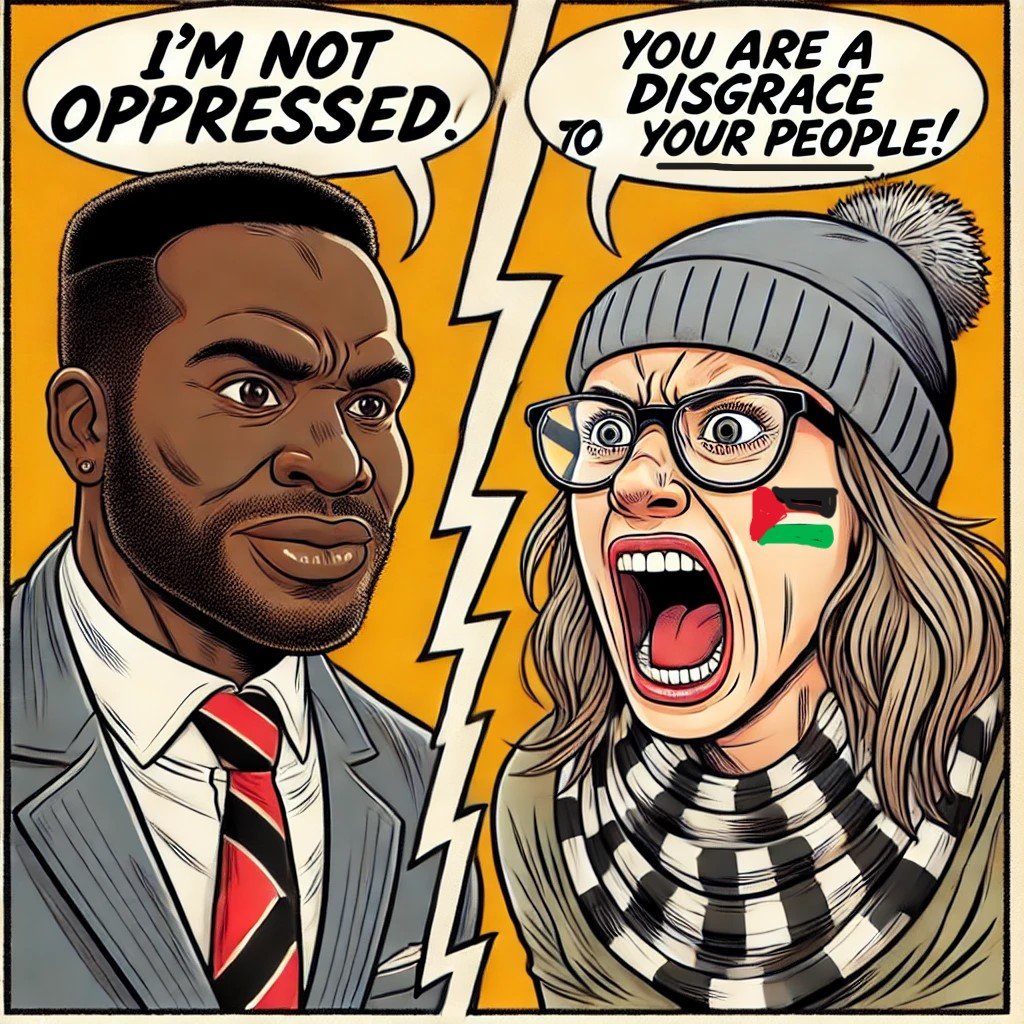
The Help
**The Help** delves into the performative solidarity and the underlying self-serving motivations of a group of white women as they navigate their own feelings of guilt and privilege. Set against the backdrop of a watch-party for the film *The Help*, the poem exposes the superficial and often condescending nature of their attempts to connect with and understand the struggles of people of color.
The scene opens with the women gathered, equipped with box rosé, scarves, and tears—a tableau of desperate solidarity. They are eager to absolve their shame and prove their subservience, glancing nervously at their token person of color. This individual, cornered before the film begins, becomes the focus of their awkward attempts at connection. Each woman, in her way, seeks to express her perceived enlightenment and distance herself from the racism of her own circle, whether by criticizing white features, expressing fear of white men (including their own husbands), or showcasing their tokenistic connections to black individuals.
Their conversation brims with self-congratulatory remarks and superficial praises, particularly directed at the actresses of the film. They fawn over Octavia Spencer's beauty, marveling at her skin, and maintain a facade of reverence and reflection, giving the floor to the "oppressed voice" only after the credits roll. This restraint is insufferable for the inebriated group, who are impatient to express their well-meaning yet condescending pity.
As the poem progresses, it becomes clear that their concern for "people of color" is tainted by their desire to be seen as saviors. They believe it is their duty to educate and uplift, yet their efforts are steeped in a patronizing attitude that fails to recognize the agency and resilience of those they claim to support. Their discussions reveal a disconnect between their self-image and the reality of their impact, highlighting a persistent, albeit well-intentioned, form of racism.
**The Help** critiques the performative nature of allyship and the superficial efforts of those who, while professing solidarity, perpetuate a dynamic of dependency and condescension. Through its vivid portrayal of a watch-party, the poem underscores the complexity and often problematic aspects of modern-day attempts at racial reconciliation.
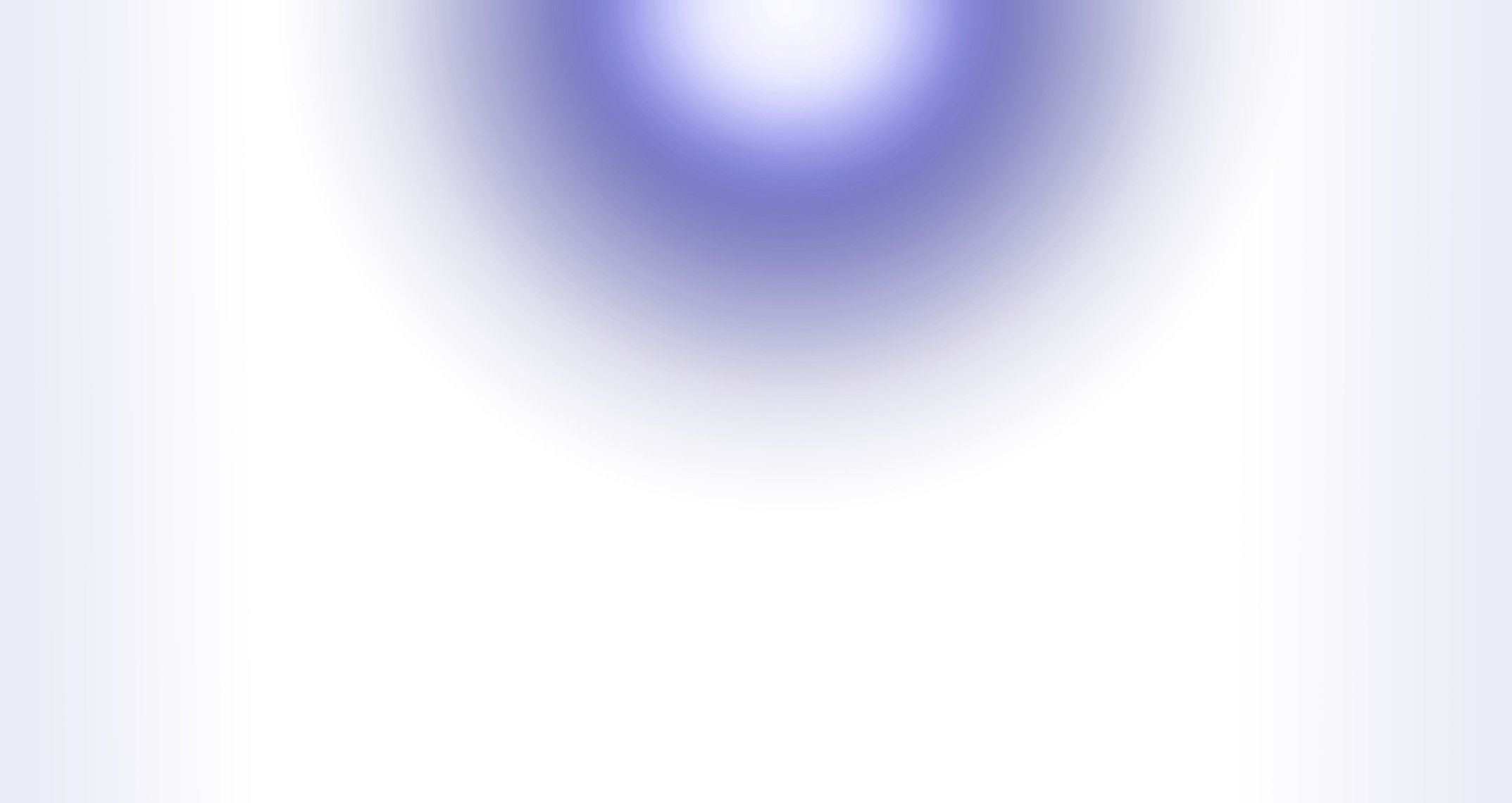
blog
FAQ

Visit my Substack: Hive Being
Visit my Substack: Hive Being

Don’t let anyone tell you that real life is lacking in poetic interest. This is exactly what the poet is for: he has the mind and the imagination to find something of interest in everyday things. Real life supplies the motifs, the points that need to be said—the actual heart of the matter; but it is the poet’s job to fashion it all into a beautiful, animated whole. You are familiar with Fürnstein, the so-called “nature poet”? He has written a poem about growing hops, and you couldn’t imagine anything nicer. I have now asked him to write some poems celebrating the work of skilled artisans, in particular weavers, and I am quite sure he will succeed; he has lived among such people from an early age, he knows the subject inside out, and will be in full command of his material. That is the advantage of small works: you need only choose subjects that you know and have at your command. With a longer poetic work, however, this is not possible. There is no way around it: all the different threads that tie the whole thing together, and are woven into the design, have to be shown in accurate detail. Young people only have a one-sided view of things, whereas a longer work requires a multiplicity of viewpoints—and that’s where they come unstuck.—Goethe (Conversations with Eckermann)
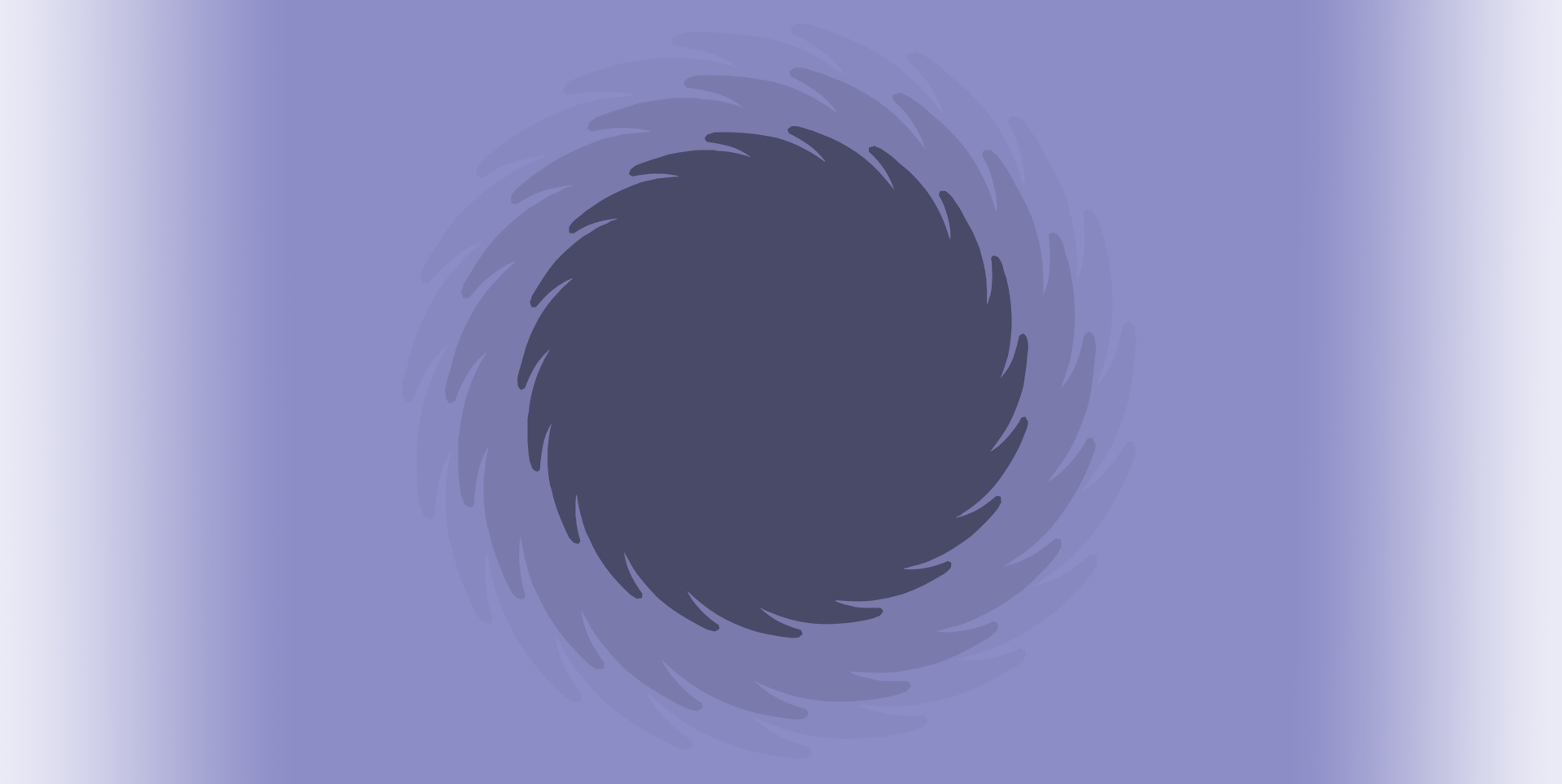
Featured Blog Posts
have appeared last night—
all those met along the way?
























